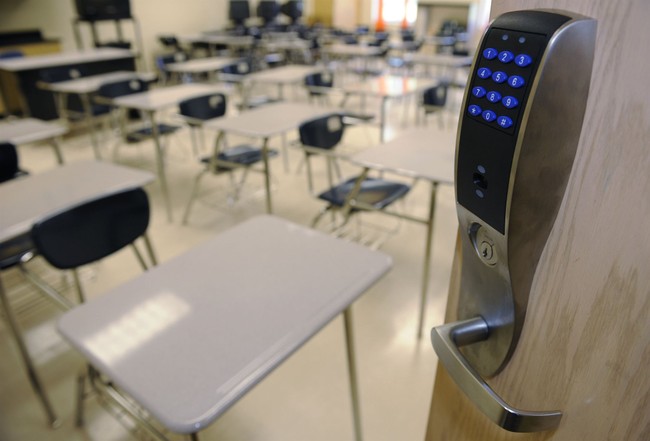
The school choice movement might have much to look forward to next year once President-elect Donald Trump is back in the White House.
School choice advocates are gearing up for potential advancement of policy at the federal and state levels. They are preparing to push for expanding these policies, including tax credit scholarships, under a GOP-controlled Congress.
“I know that there’s certainly going to be a push in Congress for a federal tax credit scholarship for school choice,” Ed Tarnowski, a policy and advocacy director for EdChoice, told The Hill.
Vice President-elect JD Vance has been a vocal supporter of school choice initiatives, having backed the Educational Choice for Children Act, a measure that incentivizes donations to nonprofits that offer K-12 scholarship funds through tax credits.
While Trump did not push heavily for school choice during his first term, it appears he plans to tackle the issue in his final term in office. Indeed, he might view it as a win for his legacy if he can help to get legislation passed. When he nominated Linda McMahon as Education Secretary, he touted her mission to “fight tirelessly to expand ‘Choice’ to every State in America,”
At the state level, there have been some setbacks when it comes to educational freedom. Voters in states like Kentucky, Colorado, and Nebraska rejected ballot initiatives favoring school choice. “The historical context is these type of bills have never passed before in a statewide ballot initiative, said Joshua Cowen, a professor of education policy at Michigan State University.
Still, there is reason for optimism. If school choice advocates can effectively communicate the value of giving parents more power to choose where and how their children are educated, it is only a matter of time before people see the light.
Texas has struggled to implement school choice measures despite being a red state. However, Gov. Greg Abbott insisted that the issue has enough support to advance next year, saying, “Our job as Texas leaders is to make sure that we’re going to provide the most effective pathway options for every child in our state.”
When announcing the proposed legislation, Tennessee Gov. Bill Lee said, “Access to high-quality education has the power to change the trajectory of a child’s life forever.”
The bill has reignited partisan debates over school choice, with Democrats aggressively opposing it as a detriment to government-run schools. “This is not going to help the students in my district. It’s going to be a lifeboat for maybe a few students and is going to be a Titanic for the vast majority of students left in our public schools,” said state Rep. Justin Jones.
School choice activists in the Lone Star State are also ready to take up the battle next year.
The American Federation for Children, a school choice organization founded by former Education Secretary Betsy DeVos that spends heavily in state legislative races, said it spent more than $8 million in the Texas primary and general elections to cement a voucher-friendly state House majority to support what could eventually become the nation’s largest statewide school choice program.
Abbott, the Texas governor, says he now has 79 votes in the state House to support a voucher bill, three beyond what’s required to approve legislation in that chamber.
“I made sure that we would elect Republicans to the Texas House of Representatives in sufficient numbers to be able to pass a school choice plan just like the Texas Senate has passed many times,” Abbott declared during a post-election news conference at a Christian private school where he boasted a “tidal wave of support” for his endorsed House candidates.
Tennessee’s leaders are also planning to push hard for school choice in the new year.
With core elements similar to unsuccessful proposals in the House and Senate last year, the newly filed Education Freedom Act of 2025 would offer 20,000 vouchers worth about $7,000 each in taxpayer funds to students statewide to attend private schools, while guaranteeing state funding to make up any gaps school districts could see from enrollment drops, offering a one-time $2,000 bonus to every teacher in the state, and establishing a new state funding source for school building construction and maintenance.
If approved, the program would take effect immediately, making use of $144 million in funding allocated in this year’s state budget specifically for a statewide school voucher program.
Several states, like Arizona, have already passed significant school choice legislation. With national debate over education, the debate will certainly come to the forefront as states begin their legislative sessions. If the school choice movement pushes hard enough, 2025 could be a critical year for educational freedom.
